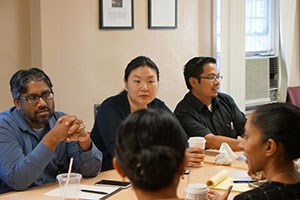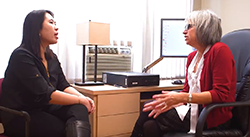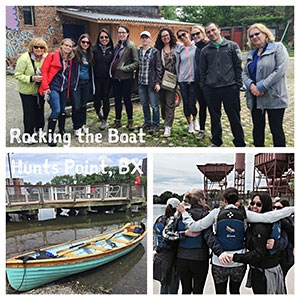Training Overview
Clinical rotations are structured so that in addition to fulfilling all ACGME training requirements, residents are immersed in an array of exciting and challenging clinical settings.
This approach is designed to promote advanced competency in the assessment and treatment of the full range of psychiatric disorders, while also addressing psychosocial and environmental stressors as well as issues of culture and diversity, (the U.S. Census considers the Bronx to be the most diverse area in the country! ), in a largely underprivileged and underserved patient population.
Treatment is taught emphasizing the use of a wide range of psychotherapeutic modalities including psychodynamic psychotherapy, cognitive behavioral therapy, family therapy, and group therapy, in combination with somatic and psychopharmacologic interventions. Rotations are located in a variety of nearby institutions including a state hospital, a voluntary hospital, a municipal hospital and several community based settings.
Didactics

Each PGY group receives a program designed to complement the clinical experiences. Psychotherapy, pharmacology, family and group therapy, and other areas are taught in advancing segments during the four-year core curriculum. A new and exciting addition to the educational experience is an enhanced opportunity for residents to engage in scholarly activity projects. In addition to protected didactic time, interested residents are allotted up to four hours per week to conduct scholarly work. Such scholarly endeavors may include but are not limited to research and publications, creation of poster or workshop presentations for national conferences, curriculum planning and development activities.
Participation in scholarly pursuits is voluntary and can be customized to suit the needs and interests of the individual resident. A weekly "T" group provides peer support and allows residents to observe and participate in group process. Residents collaborate in designing their curriculum, thus allowing the course work to be tailored to the group's interests.
The Department also sponsors many preeminent Continuing Medical Education (CME) seminars in the New York City area. Residents are invited and given time off to attend these free conferences. Click here to view the curriculum chart.
Supervision and Evaluation
 The supervisory process is psychiatry's time-honored approach to developing and refining the residents' psychotherapeutic and other clinical skills. Residents receive a variety of supervisory experiences throughout their training to ensure that their encounter with each modality is enriched with a high level of expertise.
The supervisory process is psychiatry's time-honored approach to developing and refining the residents' psychotherapeutic and other clinical skills. Residents receive a variety of supervisory experiences throughout their training to ensure that their encounter with each modality is enriched with a high level of expertise.
An essential part of the training program is timely and clear feedback. The major goal of evaluation is to provide residents with a personalized guide for fully developing their clinical skills. In a collegial atmosphere, supervisors complete written evaluations toward the end of each rotation and at six-month intervals. There is also an annual written exam, given in compliance with the standards of the ACGME Psychiatric Residency Review Committee, offered in the spirit of facilitating professional growth and ensuring that the training program is providing appropriate clinical and didactic input. Residents also provide feedback to supervisors and course instructors and evaluate the clinical rotations. Additionally, residents participate in the annual revision of our didactic curriculum.
Our Community of Trainees
 Twice a year, an "All Resident Retreat" is held, usually in the fall and the spring. The purpose of the retreat is to foster a sense of belonging within the program, and to build connections among the residents of different training years. Retreat settings and activities that enable exploration of themes related to the intersection of art, culture, history and psychiatry are frequently selected. While it is an opportunity to have fun and join together as a community, enhanced communication and problem solving are additional goals.
Twice a year, an "All Resident Retreat" is held, usually in the fall and the spring. The purpose of the retreat is to foster a sense of belonging within the program, and to build connections among the residents of different training years. Retreat settings and activities that enable exploration of themes related to the intersection of art, culture, history and psychiatry are frequently selected. While it is an opportunity to have fun and join together as a community, enhanced communication and problem solving are additional goals.
Residents are an essential link in the policy- and decision-making process. Representatives participate in the Residency Training Program Evaluation Committee, a departmental advisory committee made up of faculty from all training sites and academic divisions. In addition, the Chair and the Director of Training have regular luncheons with all of our residents. Access is direct and candid.



